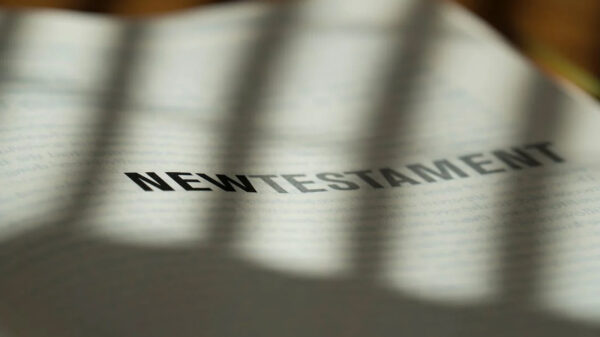
1) There is no way that the Fourth Gospel was written by John Zebedee or by any of the disciples of Jesus.
2) There is probably not a single word attributed to Jesus in this book that the Jesus of history actually spoke.
3) Not one of the signs (the Fourth Gospel’s word for miracles) recorded in this book was, in all probability, something that actually happened.
4) Many of the characters who appear in the pages of the Fourth Gospel are literary creations of its author and were never intended to be understood as real people, who actually lived in history.
5) John’s Gospel seems to ridicule anyone who might read this book as a work of literal history.
6) The Gospel also exaggerates its details to counter any attempt to read it literally.
These are emphatic and theatrical claims. Spong concludes his article with this revealing statement:
The Council of Nicea in 325 C.E. leaned on the Fourth Gospel as literal history in order to formulate the creeds and ultimately to undergird such doctrines as the Incarnation and the Holy Trinity. The texts used to support that creedal development, my studies have led me to affirm, have nothing to do with an external God entering humanity in the person of Jesus, but are rather attempts to describe the experience of the human breaking the boundaries of consciousness and entering into the transformation available inside a sense of a mystical oneness with God. If that is so, then the Fourth Gospel has the potential to become the primary biblical source upon the basis of which Christianity can be changed dramatically to speak with radical freshness to the 21st century. Christianity is not about the divine becoming human so much as it is about the human becoming divine. That is a paradigm shift of the first order.
Spong ends his article with a paragraph that betrays the way he started his investigation. It’s difficult to understand how any plain reading of the New Testament Gospels (any of the Gospels) would lead one to believe “Christianity is not about the divine becoming human so much as it is about the human becoming divine.” But if this is your starting point, it’s possible to twist and distort the history of the text to make a case (even if that case is unreasonable). This is precisely what Spong has done. Eleven years ago, Spong wrote a book entitled, A New Christianity for a New World: Why Traditional Faith Is Dying and How a New Faith Is Being Born. Spong argued Christian doctrine needed to be reformed in order to bring it into alignment with the modern world:
1. Theism, as a way of defining God, is dead. So most theological God-talk is today meaningless. A new way to speak of God must be found.
2. Since God can no longer be conceived in theistic terms, it becomes nonsensical to seek to understand Jesus as the incarnation of the theistic deity. So the Christology of the ages is bankrupt.
3. The Biblical story of the perfect and finished creation from which human beings fell into sin is pre-Darwinian mythology and post-Darwinian nonsense.
4. The virgin birth, understood as literal biology, makes Christ’s divinity, as traditionally understood, impossible.
5. The miracle stories of the New Testament can no longer be interpreted in a post-Newtonian world as supernatural events performed by an incarnate deity.
6. The view of the cross as the sacrifice for the sins of the world is a barbarian idea based on primitive concepts of God and must be dismissed.
7. Resurrection is an action of God. Jesus was raised into the meaning of God. It therefore cannot be a physical resuscitation occurring inside human history.
8. The story of the Ascension assumed a three-tiered universe and is therefore not capable of being translated into the concepts of a post-Copernican space age.
9. There is no external, objective, revealed standard written in scripture or on tablets of stone that will govern our ethical behavior for all time.
10. Prayer cannot be a request made to a theistic deity to act in human history in a particular way.
11. The hope for life after death must be separated forever from the behavior control mentality of reward and punishment. The Church must abandon, therefore, its reliance on guilt as a motivator of behavior.
12. All human beings bear God’s image and must be respected for what each person is. Therefore, no external description of one’s being, whether based on race, ethnicity, gender or sexual orientation, can properly be used as the basis for either rejection or discrimination.
Spong clearly finds the core teachings of Christianity to be offensive, particularly in light of the values and sensibilities of the world in which he lives. This has been his position for over a decade. If you reject any “external, objective, revealed standard written in scripture or on tablets of stone that will govern our ethical behavior for all time,” you will, by necessity, find yourself rejecting Jesus “as the incarnation of the theistic deity,” and believe that the “Biblical story of the perfect and finished creation from which human beings fell into sin is pre-Darwinian mythology and post-Darwinian nonsense.” Jesus, after all, affirmed the teaching of the Old Testament; if you reject the Old Testament Law, you’ll also need to reject Jesus. Truth is often offensive. The right or true way isn’t always the way that feels good, and Christianity has a long and rich history of speaking truth to power, regardless of cultural acceptance. Share on X
The first rule of investigations (as I describe in my book) is to control your presuppositions. Don’t let a presumption about your suspect change the direction of your investigation; instead, let the evidence lead you where it may. Spong’s presuppositional desires for a “less offensive” Christianity have changed the direction of his investigation. He’s reading the Bible through the lens of this desire and arriving at conclusions that are not supported by the evidence. There is a lesson we can learn from Spong. Truth is often offensive. The right or true way isn’t always the way that feels good, and Christianity has a long and rich history of speaking truth to power, regardless of cultural acceptance. Paul understood the offensive nature of Christian claims; they weren’t even popular in Paul’s day. But Paul, like the other apostles, refused to allow his fallen human nature dictate his interpretation of God’s Word. As Christian Case Makers, we also need to recognize the danger of trying to sanitize the truth in an appeal to desire.

J. Warner Wallace is a Dateline featured Cold-Case Detective, Senior Fellow at the Colson Center for Christian Worldview, Adj. Professor of Christian Apologetics at Talbot School of Theology, Biola University, author of Cold-Case Christianity, God’s Crime Scene, and Forensic Faith, and creator of the Case Makers Academy for kids.
Subscribe to J. Warner’s Daily Email
Save
J. Warner Wallace is a Dateline featured cold-case homicide detective, popular national speaker and best-selling author. He continues to consult on cold-case investigations while serving as a Senior Fellow at the Colson Center for Christian Worldview. He is also an Adj. Professor of Christian Apologetics at Talbot School of Theology, Biola University, and a faculty member at Summit Ministries. He holds a BA in Design (from CSULB), an MA in Architecture (from UCLA), and an MA in Theological Studies (from Gateway Seminary).









































Pingback: Why I Know the Story of Jesus Wasn’t Changed Over Time | Cold Case Christianity
Pingback: The Circumstantial Case For John’s Authorship | Cold Case Christianity
Pingback: Good Jurors Make Good Christian Case Makers | Cold Case Christianity
Pingback: The Dangers of “Scientism” and an Over-Reliance on Science | Cold Case Christianity
Pingback: How Do We Know What We Know? | Cold Case Christianity
Pingback: Homepage
Pingback: Is the Raising of Lazarus Fictional? | Cold Case Christianity
Pingback: The Circumstantial Case For John’s Authorship | TLG Christian News